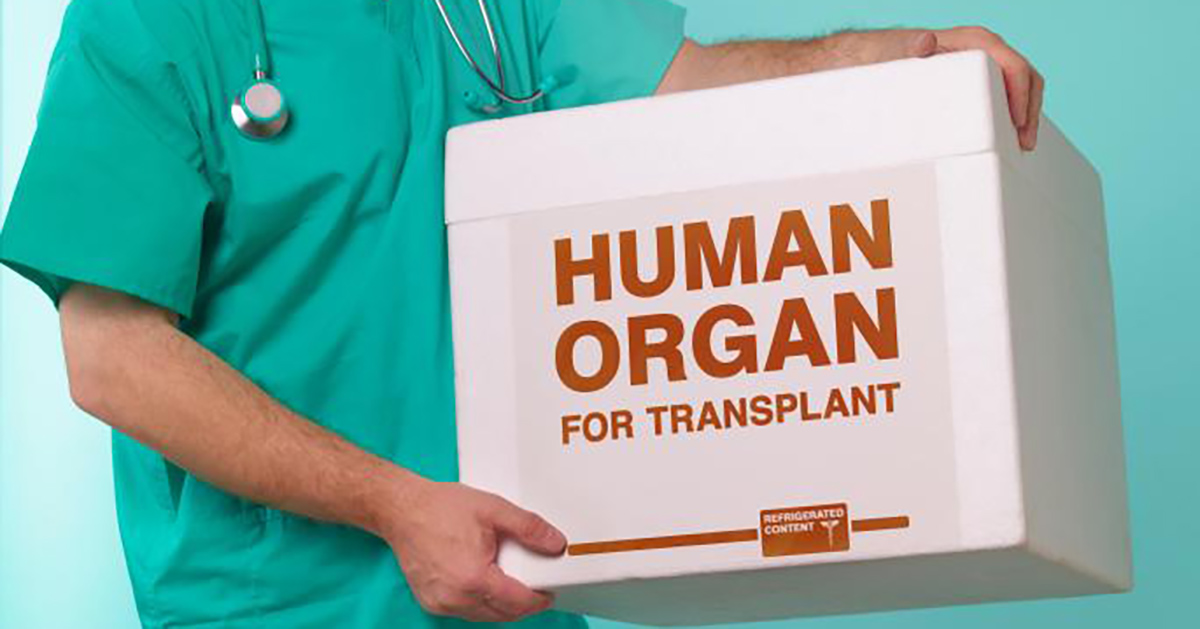Save A Life Today; Surprising Facts About Organ Donation
Imagine lying in a hospital bed believing you are close to death due to organ failure and your only hope for survival is for an organ donation. For thousands of individuals around the world, this is their reality. An organ transplant can not only dramatically improve the quality of their lives, but also save it, and restore hope for their loved ones too. Find out now why being an organ donor is so crucial, who reaps its benefits, how to become a donor, and most importantly, the legacy a simple, selfless act of kindness by a living or deceased donor leaves behind.
How The Recipient Benefits

There are numerous ways an organ recipient benefits from receiving an organ transplant. Besides saving their life, a recipient of an organ donation will have an increased lifespan, an improved quality of life, and will no longer have to pay for expensive, life-saving medication. One of the most significant benefits of a donation and transplant is the patient’s increased lifespan, as some patients are kept alive through artificial means, such as dialysis, ventilators, or ventricular devices.
With a fully functional organ transplanted, the recipient is given a fresh start to begin a new chapter of their life and can live for many years to come. With a donation, the recipient also will no longer need to pay for expensive treatments and medications necessary for their survival. For instance, a kidney transplant is a permanent solution that is less expensive when compared to the dialysis required to keep them alive when kidney function is compromised.
An Improved Quality Of Life

Recipients also greatly benefit from an improvement in their quality of life. For instance, a transplant can allow the patient to live medication-free for the first time since their diagnosis, as well as without the costly treatments needed to keep them alive and healthy. There are also specific ways that patients can benefit from certain types of donations. For instance, an eye and tissue donation can allow someone to see again, a bone marrow transplant can provide hope for children with leukemia, and a heart valve transplant for an individual who would require multiple surgeries to correct the problem with their heart.
Other transplants that can improve a recipient's quality of life include a heart transplant for cardiomyopathy, congenital heart disease, and coronary artery disease. A lung transplant can help a patient with emphysema, pulmonary fibrosis, cystic fibrosis, or pulmonary hypertension; a liver transplant for hepatitis or biliary atresia; and a kidney transplant for diabetes, hypertension, or polycystic kidney disease.
How The Donor Benefits

An individual may choose to become an organ donor for many personal reasons. However, it is true that some individuals mainly do it because it makes them feel good and they want to help those in need. Besides this reason, there are many benefits to the donor and their family that may not be as obvious. For instance, for a living donor, such as an individual donating one kidney or parts of a liver or lung, if they give to someone they know they will get to witness firsthand the effects of their donation and how their simple act of kindness improves the life of someone who truly needed it.
If the organ is donated to a stranger, living donors often get to meet the recipient of a donation (not always specifically theirs). Therefore, they will still have a profound understanding of how their generous gift can impact the life of someone who is suffering. Living donors are also put at the top of the transplant list, and if they ever need a transplant themselves later on in life, they will receive the first available donation due to their generous gift.
How Loved Ones Of The Donor Benefit

To put it simply, organ donations save lives. As a result, when a family decides to fulfill their loved one’s wishes to donate their organs to someone in need, the family can reap incredible benefits from this selfless act. While a family is grieving their loved one, there is comfort in knowing their loss has not been in vain as their organs can help another individual live a fulfilling and healthy life. Some donors may even want to contribute their body to medical research, as they feel a sense of responsibility to others and to help advance the field of medicine. For donors who choose to donate their body entirely after death, the organs that can be used will be given to those who are in need while the rest is used to train the doctors of the future. This can also bring comfort to a grieving family to know their loved one left a lasting legacy that contributed to medical science and helped improve healthcare for all.
Lastly, the powerful legacy left behind by an individual who changed the life of someone in need of an organ is inspiring, as it is witnessed with donor and recipient stories. These benefits go beyond the recipient and donor and affects everyone in both of these individuals' lives. Donating organ tissue and organs can make a direct difference in up to eight patients' lives, leaving behind a powerful legacy the family can be proud of.
Fast Facts About Organ Donation & Transplantation

According to the U.S. Government Information on Organ Donation and Transplantation, in the United States alone there are over one hundred sixteen thousand men, women, and children currently on the national waiting list. Within that list, 33,611 transplants were performed in 2016 and approximately twenty patients per day die as a result of waiting for an organ transplant. The extraordinary news is one donor can save up to eight lives, as each donor can provide a heart, a pair of lungs and kidneys, a liver, pancreas, intestines, a set of eyes and numerous tissues that could be used for reconstruction surgery or other purposes.
Organ Donation Fast Facts Continued

Statistics for the national waiting list alone indicates that almost two-thirds of patients waiting for a transplant are over the age of fifty, almost two-thousand patients are children (under eighteen), and approximately seventy thousand or fifty-eight percent on the list are ethnic minorities comprised of African Americans, Hispanics, Asians, and others. The most common organ patients are anxiously waiting for is a kidney - at eighty-three percent as of 2017 - with 19,062 kidney transplants performed in 2016 alone. Transplantation statistics show eighty patients will receive a transplant a day in the U.S. The majority of these recipients being Caucasian (at fifty-six percent) with sixty-two percent being male, and thirty-eight percent being female. Donation statistics reveal 41,355 donations were made as of 2016, and ⅘ of these donors were deceased white males over the age of fifty.
How Can I Help Save A Life?

There are a couple of ways you can help. The predominant way to help those in need of vital organs is to register as an organ donor in your state or province. Registration statistics for the U.S. have illustrated that in 2016, more than 130 million Americans over the age of eighteen were organ donors - which is approximately fifty-four percent of all American adults. These authorized, registered donors are accounted for forty-six percent of recovered organs, fifty-one percent of recovered tissues, and fifty-four percent of recovered eyes in 2016 alone. The states with the highest percentage of registered donors for their respective populations are Montana, with eighty-nine percent, Alaska with eighty-six percent, and Washington with eighty-five percent.
Other ways you can make a difference is to speak to your loved ones about your views and wishes about organ donation, such as what organs you would want to donate if you were to pass away and also to spread the word on social media and raise awareness about the significance of organ donation. Individuals wishing to contribute differently can also volunteer their time and energy to organizations that deal with registration and donations.
How To Become A Donor

Apparently, ninety-five percent of the American population supports organ donation, but only fifty-four percent of the population are actually registered organ donors. Every ten minutes, another anxiously waiting patient is added to the growing list of those who need a transplant, and only three out of one thousand people will perish in such a manner that their organs can be appropriately harvested for an effective transplant. Based on these facts, it is paramount that an individual either becomes a donor or at least considers the idea of donating an organ while they are still alive or when they are deceased.
The easiest and best way to become a donor is to sign a card, which you can obtain on the U.S. government website for organ donations, obtain a form from a government office, register directly with the donor registry online or sign the back of your driver’s license. Children must have their parents permission to become an organ donor. Remember that anybody of any age, ethnicity, or with any medical condition can become an organ donor. Save a life and register today!
